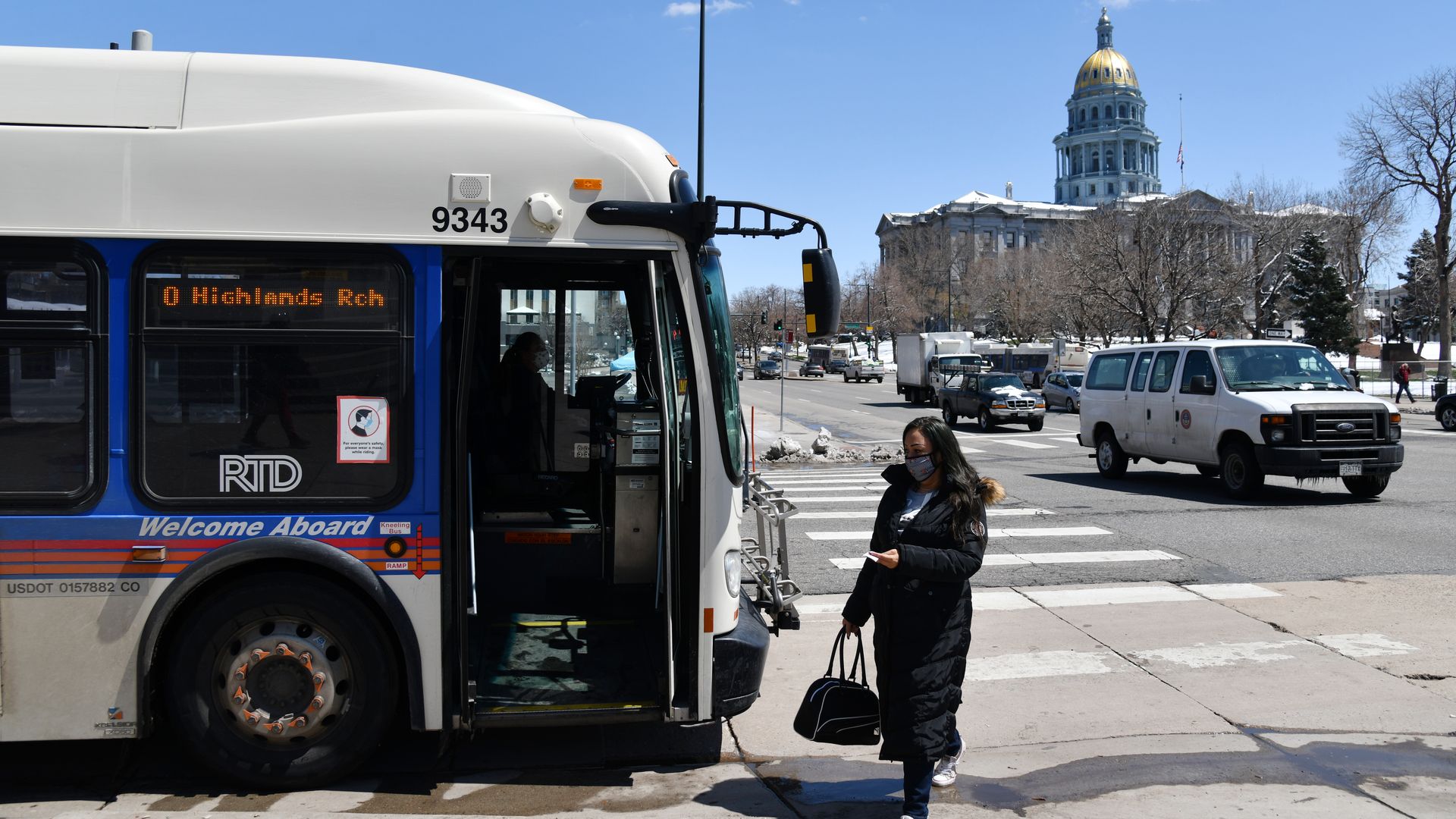RTD's safety record takes spotlight ahead of free fare months
Add Axios as your preferred source to
see more of our stories on Google.

The RTD 0 Line bus makes a stop at Broadway and Colfax Avenue in Denver in 2021. Photo: Hyoung Chang/MediaNews Group/The Denver Post via Getty Images
Over the past five years, no travel option in Denver has been safer than riding public transit.
Details: From 2018 to 2022, 360 people died on Denver's roads, with 45% of those fatalities involving cars, according to city data.
- The Regional Transportation District (RTD) transit lines recorded zero deaths during the same time span.
Why it matters: Despite being the most statistically safe travel option in the city, RTD has struggled to regain ridership after the pandemic.
Catch up quick: Using public transit is a priority outlined in Denver's new six-year Vision Zero action plan, which was released last month. It aims to eliminate traffic deaths in Denver.
- Specifically, the new plan calls on drawing more attention to transit as a safer alternative to driving in Denver by supporting more bus-only lanes along major corridors to make riding buses more attractive and efficient.

Yes, but: That's not to say there aren't safety concerns.
- Fears of crime and drug use keep some people from using the service, transit agency spokesperson Tina Jaquez tells us.
By the numbers: RTD sees about 175,000 daily boardings, a drop from 300,000 pre-pandemic, according to senior service planner Maux Sullivan.
- Some of it is due to larger cultural changes: With people working from home, there are fewer folks commuting to the office.
State of play: RTD will begin its Zero Fare for Better Air program next month, giving people free bus and light rail train rides through August, and potentially giving the agency a boost in riders when it needs it most.
- Sullivan tells us last year's program was largely successful, with ridership increasing by 22% between July and August last year and some sustained ridership in September.
- A state bill passed during this year's session allows the agency to provide free rides.
What's next: The transit agency is considering reducing fares from $3 to $2.75 for local and regional rides, and starting a pilot program in September for free fare for students 19 years and younger.
- Ultimately, making RTD more appealing to people will mean providing more frequent and reliable service, Sullivan tells us.
What we're hearing: Molly McKinley, policy director at Denver Streets Partnership, tells us she's excited to see a focus on public transit from the city, especially after her nonprofit advocated for its use.
- Its 2022 plan for improving safety called on the city to work with RTD and the state transportation department to pay for more bus infrastructure and services to help prevent more traffic deaths.
Be smart: RTD has an online calculator that can help people determine how much money they can save by riding transit.
